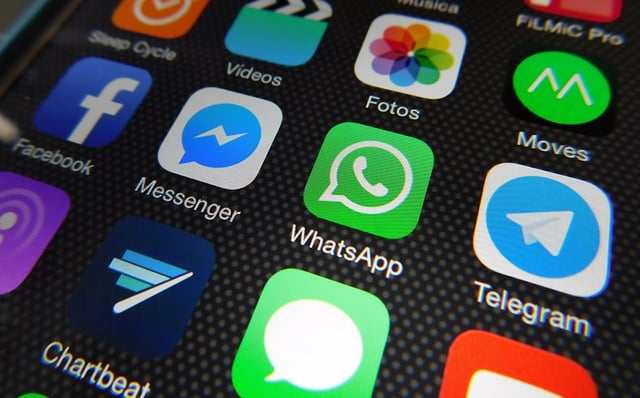WhatsApp Vs Facebook Messenger For Marketing: The 5 Key Differences

For many people, WhatsApp and Facebook Messenger are replacing SMS and email as their primary means of rapid communication. This applies as much to business communication as it does to personal interactions, with colleagues regularly sharing images and work-related files via WhatsApp rather than the company email system – especially when working remotely. There is an open debate at the moment about the potential both platforms have for marketing. This article will examine the differences between the two superficially similar systems and how each can be used as part of a marketing strategy.
At the beginning of 2017, WhatsApp could boast 1 billion global registered users. The platform has a huge potential for instant contact with customers and for highly targeted marketing campaigns. As WhatsApp accounts are linked to a person’s phone number, it is (in theory) to send a message through WhatsApp to any registered user for whom you have a mobile number. Before you get tempted, however, be aware of the fine line between promotion and intrusion.
1) Consent
While people expect to receive adverts on Facebook, Twitter and LinkedIn, WhatsApp is largely viewed as a private communication device. WhatsApp’s own updated privacy policy, introduced in August 2016, underscores this point. WhatsApp is not currently governed by the consent laws applicable to SMS and email marketing, but the same protocols should be followed. Get consent from your prospects before you send any message through WhatsApp.
If you have this consent (which can be worked into any online signup form) the signs are promising for lead generation. Since 2015, several large B2C brands have engaged in WhatsApp promotions. Underwear brand Agent Provocateur, for instance, reported a 26% increase in mobile traffic around Christmas 2016 in response to their targeted WhatsApp promotions. Successful results were also reported by Clarks, the shoe retailer, following their WhatsApp marketing campaign for their Desert Boots range in 2015.
In each case the purpose of the WhatsApp campaign has been to target mobile users and increase mobile traffic in response to a specific campaign. This opens up interesting possibilities for B2B marketing strategies.
2) Chat Bot Tools
Facebook Messenger has more explicit possibilities as a marketing application. The first is its chat bot tool. A chat bot can help you increase lead generation through your Facebook page by automating responses to customer queries that come through the platform. You can set up your chat bot to capture contact details and answer basic questions; and to ensure each prospect gets a rapid response whenever they get in touch through Facebook.
3) Adverts
You can also create Facebook Messenger adverts that aim to start a conversation with a user or get them to engage with your brand. Adverts can be targeted in the same way as standard Facebook Ads. Unlike WhatsApp marketing messages, Facebook Messenger ads can be unsolicited. The advert can link to a landing page or promotion, or be connected to a chat bot to promote increased brand interaction.
The important point when using Facebook Messenger for marketing is to engage your prospects with interesting content. Be fun, ask intriguing questions, be helpful and propose innovative answers to problems they may face.
It is hard to tell at the moment which of the two platforms is better for marketing. Facebook Messenger is head and shoulders above WhatsApp in terms of the tools it has available, but hard data has not yet been published but allows us to compare results like for like.
4) Personal Preference
Most individuals who use one platform also use the other, with there sometimes being a preference based on their style of use. These preferences currently exist on an individual, rather than a business level. We do not know of any business that has a WhatsApp or Facebook Messenger policy in place that favours and regulates either platform.
5) Target Audience
For a marketer, therefore, it is essential to fall back on your understanding of your buyer personas, or customer types. Are your target customers – as in the actual human decision-makers, rather than businesses – more likely to use WhatsApp or Facebook Messenger, and what sort of marketing approaches will they be open to on each platform?
As we have seen, both platforms do have some potential for marketing, but this is still very much in the exploratory phase. We are reminded of the discussions people were having in the industry about Facebook and Twitter around 2010/11. It remains to be seen how these communication platforms will grow but we are excited about the prospects.
To discuss a marketing strategy that includes all the emerging social media and communication platforms, chat to one of our JDR team today. We can put together a tailor-made package that can help you reach your customers on their own terms and boost your profit margin.


